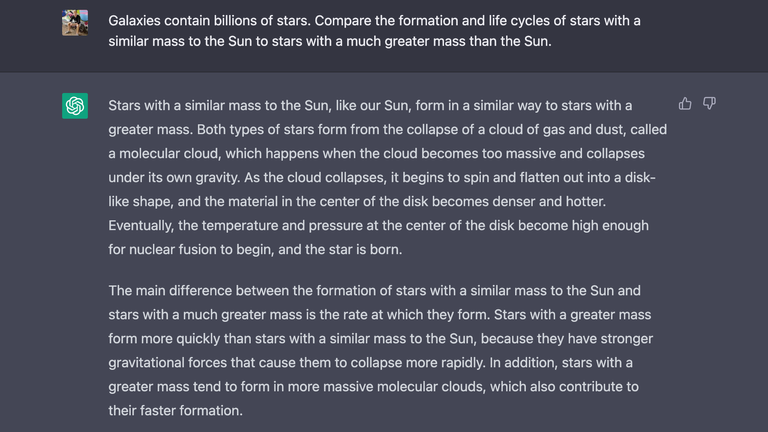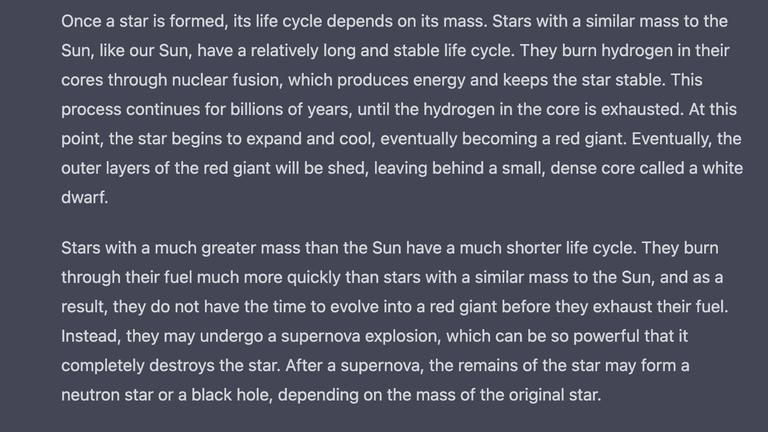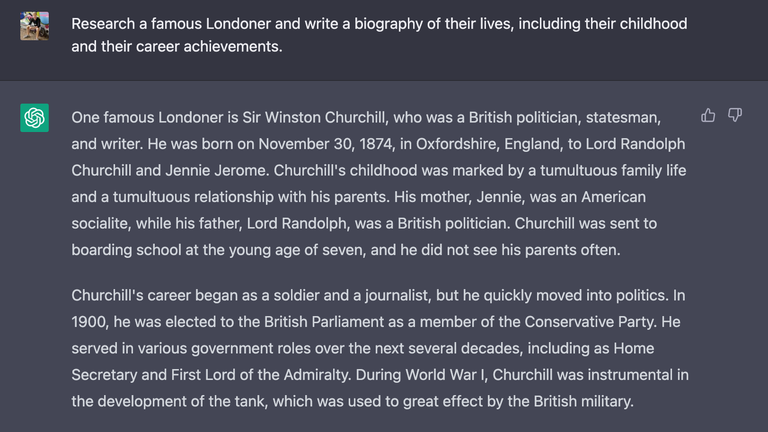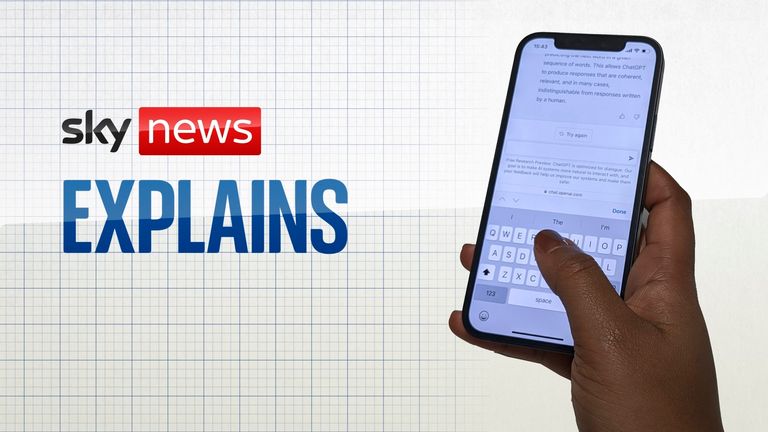“Have I seen this somewhere before?”
Since time immemorial, this is a question teachers have had to ask themselves when grading homework.
But never mind students searching through Wikipedia, or perusing SparkNotes for some awesome Gatsby analysis, there’s another school challenge emerging on the back end of 2022: ChatGPT.
Online chatbots, which can generate lifelike responses at will, have taken the world by storm for their ability to do everything from fix computer errors to help with writing A Sky News article about myself.
Last week, the largest education department in the United States banned it over concerns about cheating students.
New York CityWhile it can provide “quick and easy answers to questions, it won’t develop the critical thinking and problem-solving skills that are essential to academic and lifelong success,” says the teaching authority of the National Institutes of Education.
Of course, that won’t stop students from using it at home – but can they really use it as a shortcut for homework?
Teacher vs ChatGPT – Round 1
First, Sky News asked a middle school science teacher from Essex (who was unfamiliar with the bot) to provide ChatGPT with a homework problem.
Galaxies contain billions of stars. Comparing the formation and life cycles of stars with a mass similar to the Sun’s to those of stars with a mass much greater than the Sun’s.
It’s fair to say that ChatGPT let the mask slip off almost immediately, as you can see in the image below.
Asking ChatGPT to answer the same question “Meets secondary school standards” elicits another detailed response.
Teacher’s evaluation?
“Well, it’s definitely more detailed than any of my students. It’s really beyond what you’d expect at GCSE, so if anyone were to submit it, I’d be very skeptical. I’d assume they copied and pasted from somewhere.”
Teacher vs ChatGPT – Round 2
Next up was a primary school teacher in Kent who was also not familiar with ChatGPT and had recently given it homework.
Research a famous Londoner and write a biography of their life, including their childhood and their professional achievements.
No problem, says ChatGPT, though it’s fair to say that any 9-year-old submitting the answers below will either be fast-tracked to college or go straight to lunchtime detention.
“Even just looking at it, I’d say they copied it straight off the internet,” the teacher said.
“No 11-year-old knows the word chaos.”
‘Key decisions’ facing schools
Just as copying directly from a more familiar website would set off alarm bells for a teacher, so would copying verbatim from ChatGPT.
But teachers say students are among the most internet-savvy people around, and ChatGPT’s ability to generate seemingly textbook-quality responses on the fly still needs to be monitored.
Jane Basnett, director of digital learning at Downe House School in Berkshire, told Sky News the chatbot showed the school some “key decisions” that needed to be made.
“As with all technology, schools must teach students how to use technology properly,” she said.
“So with ChatGPT, students need to have the knowledge to know whether the resulting work is of any benefit, which is why we need to teach students to be discerning.”
No matter where you get the podcast, subscribe to Sky News Daily with one click
Given its rapid emergence, Ms. Basnett is already exploring how her school’s anti-plagiarism system will respond to automatically generated papers.
But just as teachers must consider the benefits and pitfalls of teaching students about using AI, Ms Basnett said her colleagues should also be open to its potential.
“ChatGPT is very powerful, and as a teacher, I can see some benefits,” she said.
“For example, I can enter a request to create a series of lessons on a specific grammar point, and it will create a lesson for me. This requires the teacher to analyze the created lesson and revise it, because the suggested lesson, while good, is not Ideal. But the key ingredient is there and it could be really useful.
“I can imagine an article created using ChatGPT and work with my students on the pros and cons of this article.”
Institutions that choose to ban or ignore the technology are simply burying their heads in the sand, said Dr. Peter Van der Putten, assistant professor of artificial intelligence at Leiden University in the Netherlands.
“It’s there, just like Google is there,” Dr. van der Putten said.
“You can write it into a policy to prevent plagiarism, but the tool does exist.
“Sometimes you do need to embrace the stuff, but be aware of when you don’t want to use it.”
‘Bull **** steroids’
For students and teachers, this is an opportunity to improve their digital literacy.
While it proves its worth in creative tasks like problem solving or coming up with ideas, true comprehension and comprehension still lie beyond it.
Developer OpenAI admits that the answers can be “too long-winded” or even “incorrect or nonsensical,” although they sound reasonable in most cases, like some sort of desperate, ill-prepared job seeker.
As Dr. Van der Putten puts it, ChatGPT is often little more than a “ghost on steroids.”
Teaching students about these limits is the best way to ensure they don’t become overly dependent on it — even in a pinch.




